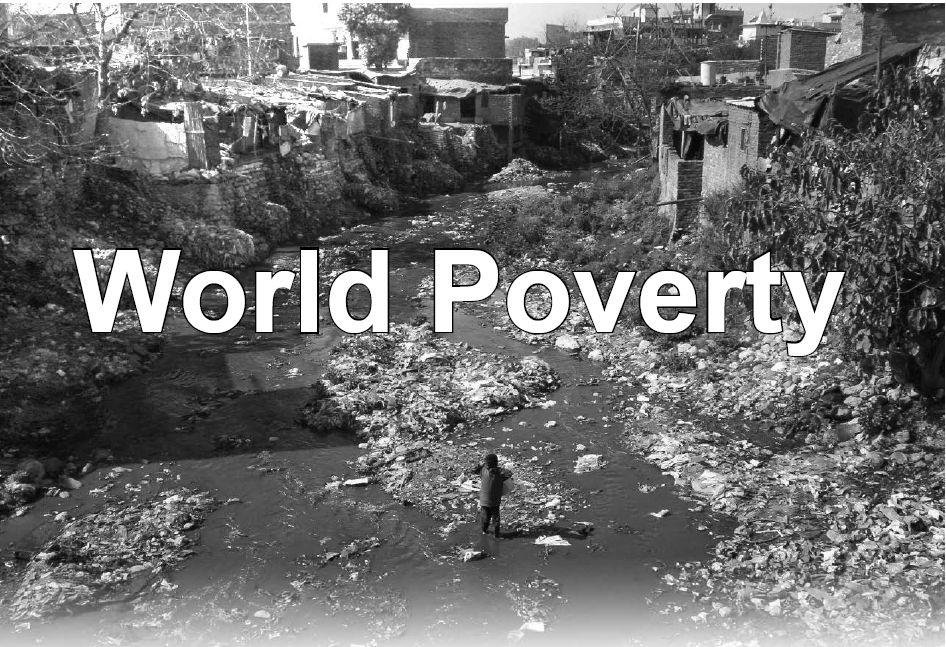
Poverty is the state of one who lacks a certain amount of material possessions or money. Absolute poverty or destitution refers to the deprivation of basic human needs, which commonly includes food, water, sanitation, clothing, shelter, health care and education. Relative poverty is defined contextually as economic inequality in the location or society in which people live
FACTS
Around the world, in rich or poor nations, poverty has always been present.
- Almost half the world — over 3 billion people — live on less than US$2.50 a day.
- The GDP (Gross Domestic Product) of the 41 Heavily Indebted Poor Countries (567 million people) is less than the wealth of the world’s 7 richest people combined.
- Nearly a billion people entered the 21st century unable to read a book or sign their names.
- Less than one per cent of what the world spent every year on weapons was needed to put every child into school by the year 2000 and yet it didn’t happen.
- 1 billion children live in poverty (1 in 2 children in the world). 640 million live without adequate shelter, 400 million have no access to safe water, 270 million have no access to health services. 10.6 million died in 2003 before they reached the age of 5 (or roughly 29,000 children per day).
In most nations today, inequality the gap between the rich and the poor is quite high and often widening. The causes are numerous, including a lack of individual responsibility, bad government policy, exploitation by people and businesses with power and influence, or some combination of these and other factors. Many feel that high levels of inequality will affect social cohesion and lead to problems such as increasing crime and violence. Inequality is often a measure of relative poverty. Absolute poverty, however, is also a concern. World Bank figures for world poverty reveals a higher number of people live in poverty than previously thought. For example, the new poverty line is defined as living on the equivalent of $1.25 a day. With that measure based on latest data available (2005), 1.4 billion people live on or below that line. We often hear leaders from rich countries telling poor countries that aid and loans will only be given when they show they are stamping out corruption.
While that definitely needs to happen, the rich countries themselves are often active in the largest forms of corruption in those poor countries, and many economic policies they prescribe have exacerbated the problem. Corruption in developing countries definitely must be high on the priority lists and is increasingly becoming so in the wake of the global financial crisis), but so too must it be on the priority lists of rich countries. Poverty reduction is a major goal and issue for many international organizations such as the United Nations and the World Bank, its is almost impossible to eradicate poverty but there is much more the world leaders can do.


No comments:
Post a Comment